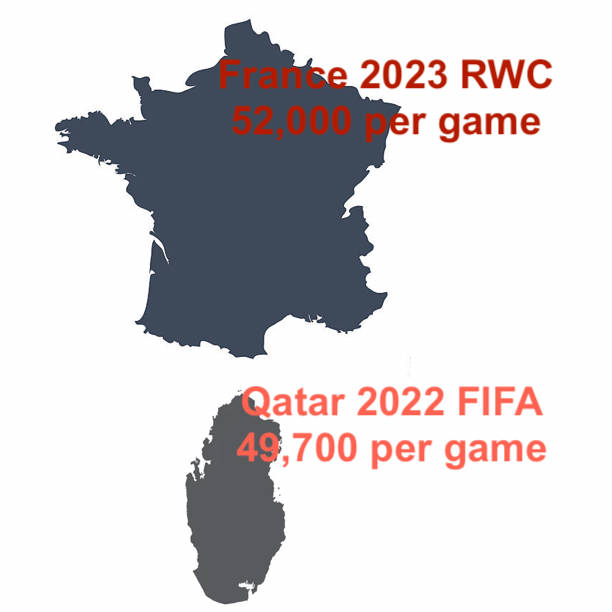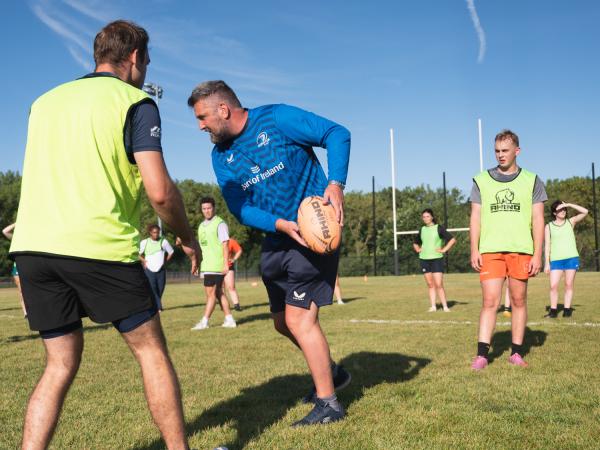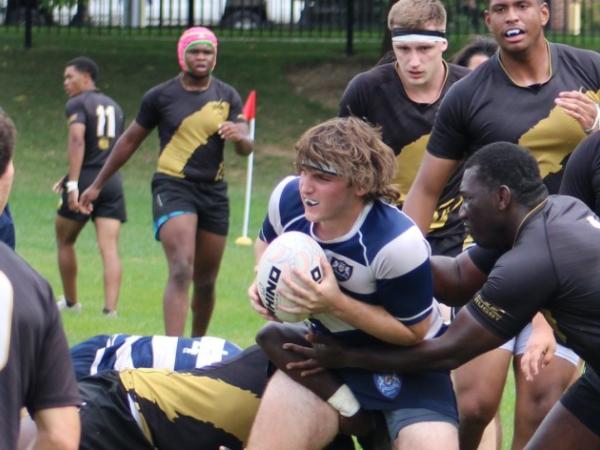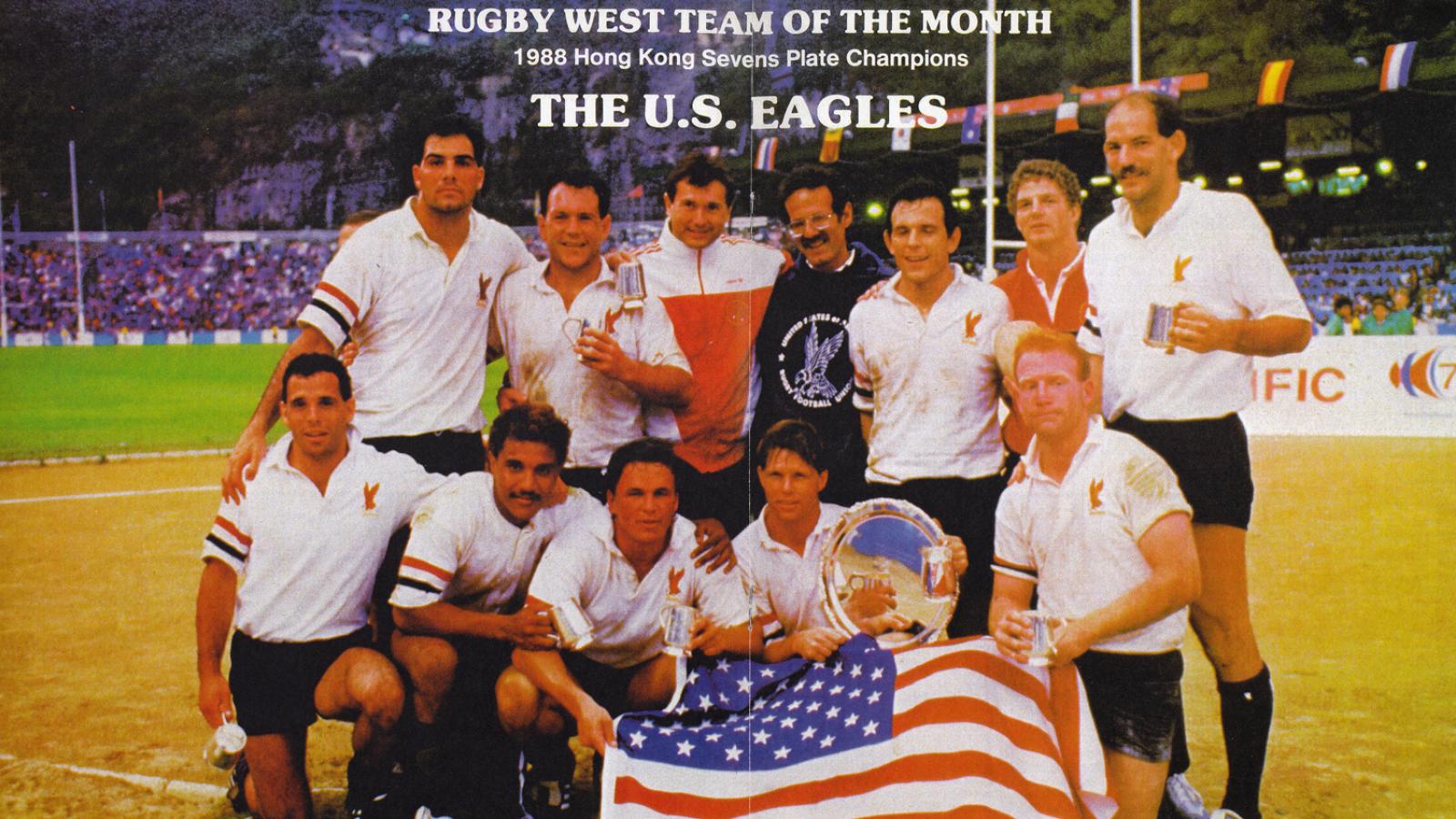A Column by Alex Goff (transcribed from the below video)—One of the things that keeps coming up that people want to talk to me about on a regular basis is the Rugby World Cup—Not the one that's happening for the women in just a couple of months, not the one that's happening for the men just a couple of years, but the one that's coming around in six years which is going to be hosted by the USA.
That'll be the Men's World Cup of 2031 and then of course the Women's World cup in 2033. World Rugby a few years ago came up with the decision that they wanted to plan ahead a little bit better. And I think anybody who looks at any of these major world sporting tournaments kind of likes that idea.
The whole drawn-out bid process, the potential for corruption which we've seen in a variety, variety of places, variety of sports, variety of events, just is just sort of infuriating. And we hear especially like with the Olympics, but also with some of those other multi sport events, World Rugby said okay, let's map it out.
Let's just see what are we going to do for the next several years; we're going to go in 27 and 29 Australia, 31 and 33 the United States. Great. Makes sense, right?
And then that's all to say that World Rugby said 'look, let's plan ahead.' And I think that they're planning ahead secretly further than that and they should be, because at some point the Rugby World cup becomes far too big for major nations.
[in] 2011, New Zealand hosted the Men's World cup and a few years later they hosted the women and the women's still smaller tournament. So it could still be done. But 2011 was said to be the last time New Zealand would host the Men's World cup.
And it's because the country is too small, the infrastructure is too small, the number of hotels, the number of venues, all those things just not enough. Especially with this tournament expanding to 24 teams. Australia can do it. Bit stressed but they will see how they do it.
Pretty sure they can do it.
I think France has done a great job the two times they've hosted in two 2007 and then 2023. So yes they can host it. And why can France host it is because France is essentially square, slightly, I think slightly taller than it is wide, but it's essentially square, well connected with airports, roads and the tgv, the high velocity train, and then they have towns all throughout that square, that can host, that are big enough, have venues that are big enough to host Rugby World Cup?
Tellingly, and I think I mentioned this before, I think 2007 they had about 13 venues, and 2023 they went to nine. And I think that that is something that you'll see sort of a trend there is that Rugby World Cup is going to be moving toward a larger, venues, things like that.
So anyway, all of this is to say that people talk to me about the, the USA hosting and say what's going on? Are these people asleep at the wheel? We've heard nothing. Are they doing nothing? Are they just sit standing around hoping that something's going to happen?
Are they going to do a terrible job and American Rugby is going to look stupid and is USA Rugby going to lose a ton of money? And it's fair to ask that because American Rugby can on a time look pretty stupid. And as far as Hosting massive tournaments, 2018 Sevens World cup was a sellout, a huge success.
Lots of people came and USA Rugby managed to lose money on it. Why? Because they had a bad concessions deal and they had bad hotel deal. And that bad hotel deal was because of timing of announcing when they would host it before they'd secured their hotel deal. That's bam. That's it might be other factors but that's it.
Had they got a piece of the concession sales and had they worked deals before hotels jacked up the prices for hosting all those teams, USA Rugby would have made a lot of money and they would have been a lot happier. So I have spent some time talking to people about this now.
The caveat for this is that my main sources are Alan Gilpin, CEO of World Rugby and Ross Young, former CEO of USA Rugby, who is now in charge of the commercial entity that's possibly known as Rugby World Cup USA. But I think you kind of have to rely on my ability, to sniff out a little bit of BC. Maybe there is some there. Fine. But I also sort of have to get an idea of what they're thinking, what they're doing, things like that.
This video is brought to you by Next Phase Rugby, which is an app that allows high school rugby players to connect with college rugby programs around the country.
Those programs can be school supported club, all kinds of different ones. 450 are already on the app and thousands of collegiate hopefuls are also on the app. Download the app if you're a college or if you are a high school player looking for a college, go to next phase rugby.com.
And that was when the bid was, presented to World Rugby and approved. And everyone said, yay, let's go; 30 of those are in the United States. One was in Canada; that was Vancouver. We now have ... we're dropping down to closer to 20, 23, something like that. One or two have sort of said we can't sign on the dotted line that we're still interested, but we are still interested. Just check back with us. We've got city, elections coming up, state or provincial elections coming up, things like that.
So we just want to be sure before we say, yeah, yeah, yeah, yeah. But it's in the 20s, so a couple have dropped out. And probably maybe 30, 32, 33 venues that are under consideration.
It's not going to be that many. It's probably going to be closer to 13, 14, 15. It's still going to be probably the most venues any Rugby World Cup has ever had. And why? Well, we know why. The number one reason. It's, it's like, patently obvious. So they're going to hold, the World Cup in the time frame that they normally hold it.
September, October, maybe into the first weekend of November. And I'll talk. I'll tell you, let's go into the reasons why first. Parentheses into parentheses. We're already down a rabbit hole. Why hold it in September, October, November? Because they hold it in September, October, November, all the time. The time off for teams and the prep for teams is very important. Remember that Northern Hemisphere professional leagues are still playing, but they're kind of stressed and they've accepted that.
But what they don't want is, a lot of extra time which should be player off time going into preparation for the World Cup. So if you think about the English Premiership or the United Rugby Championship or the French [Top14] League, all of these things ending in late spring, you know, May to June, right after that, players are supposed to have time off.
Bam, June, get off your feet, fix what's wrong with you. Whatever. That's very, very important. If you start to start the World Cup earlier, it's really hard for them to get that time off. It's hugely important, not only for, the players, but also for the quality of the World cup and the professional leagues, the professional teams whose players are being asked to do this. So that's very difficult.
Second reason not to move it, to move it into the summer for the United States is in, case you haven't noticed, it is summer. It's hot in the United States in the summer. Not everywhere. Some places are very pleasant. But, heck, if they, if they could host the whole thing in, like Portland, Seattle and Vancouver, the weather would be fantastic. Although I think it was at the club, World Club Soccer World Championships, it was raining. So, rain's not the end of the world. A little bit of thunder and lightning.
That's rare. But usually in the summer it's great. Anyway, but you kind of say, well, you can't have places like Texas, Louisiana, Florida, even Southern California. Even the breadbasket, Kansas City, something like that, St. Louis. These very, very difficult places to say, yes, we're gonna hold World Cup stuff here. You could only do it, probably only do it at night. Limits your options. Things like that just again, complications upon complications.
So bump, bump, back we go. September, October, beginning of November. Fine. Well, what's the problem there in America? Football. Namely the NFL. College football as well. The biggest stadiums available are college football stadiums. However, they are in remote-ish areas.
And, I think that they are less likely to be, on the slate for venues for the Rugby World Cup simply because they're huge. You, could say, all right, look, New Zealand plays England in a pool match. And you say, that's going to be huge. Can you get 100,000 people to, Ann Arbor, Michigan? No. Just no. So, that's the understanding there.



































































